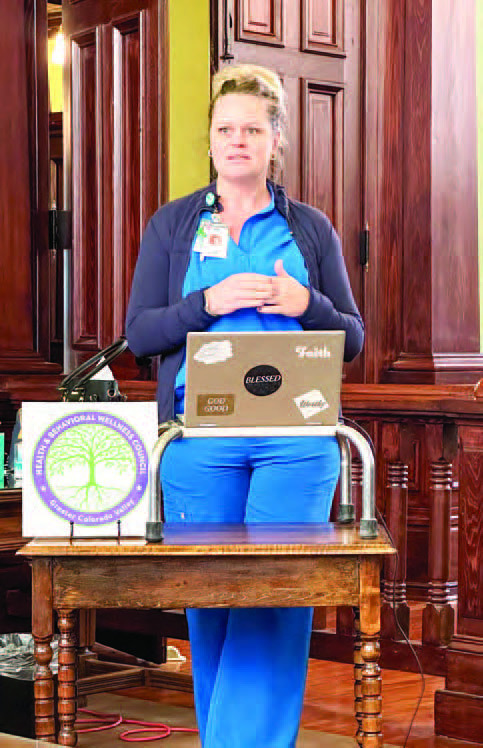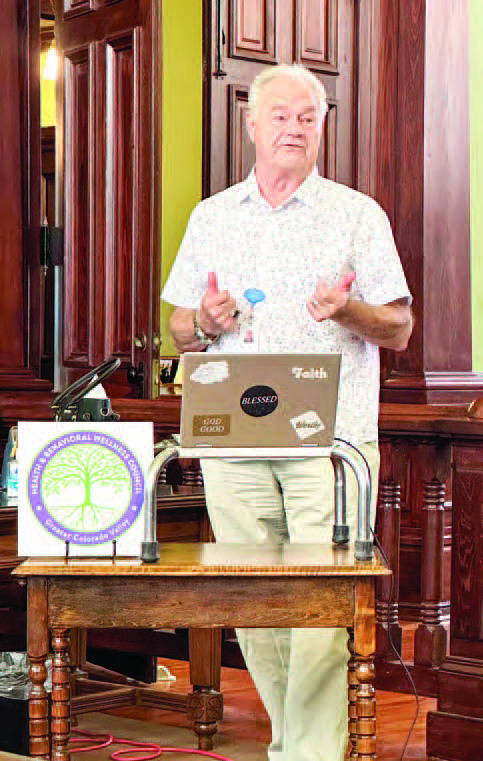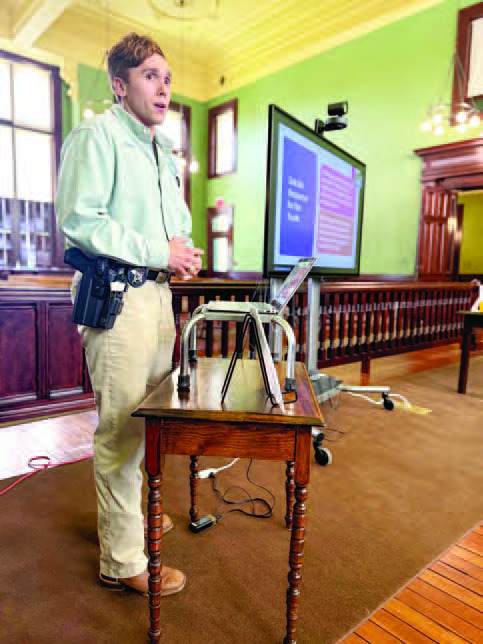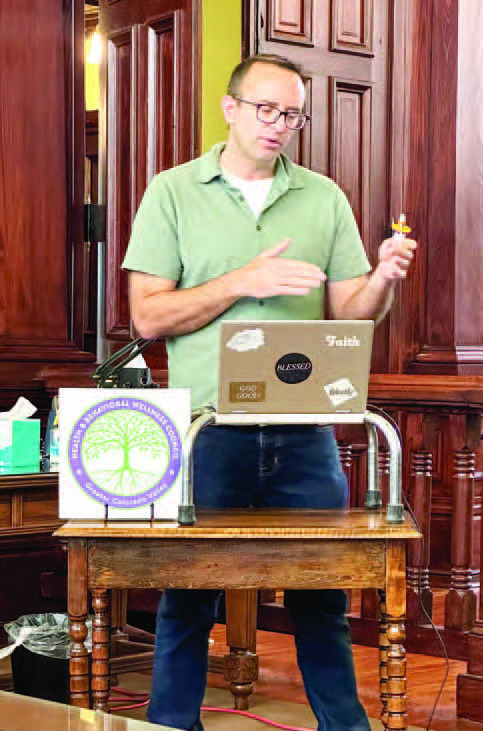Wellness Council speakers discuss suicide awareness, depression, prevention
Our community has been impacted by suicide much too often in the last few years, and we all seek answers and solutions. First, we owe it to ourselves and children to increase our awareness and look for opportunities to make a difference. The Wellness Council invited Dr. Robert Katz, a family physician that integrates mental health into care plans, Marian Taylor, RN, BSN, and psychiatrist Dr. Michael Fuller to be our guest speakers for our September meeting. All three are from Bluebonnet Trails Community Services in La Grange, Texas.
Dr. Katz gave an update on the tremendous success of a new medication called Spravato for adults with treatment-resistant depression. He reported that this new medication has been life altering for some who otherwise were not able to bring their depression into full remission through other forms of treatment.
Dr. Fuller specializes in treating individuals who suffer from a variety of conditions such as post-traumatic stress disorder, depression, bipolar disorder and schizophrenia. In this age of telehealth, Dr. Fuller still treats his patients in person.
Additionally, Colorado County Sheriff’s Mental Health Deputy Andrew Lopez talked about his work in the community providing crisis intervention, as well as discussed what he sees as the most important steps parents, spouses and the community can take to recognize and prevent suicide. He reported that the county has had 10 documented suicides since 1923. Three were teenagers, and the remainder were adults.
Suicide is a difficult subject to discuss, and awareness and knowledge are key. The Wellness Council is dedicated to increasing awareness and reducing the stigma of depressive disorders and the need for treatment. Acknowledgement of the problem begins with the numbers that tell the story.
Suicide is increasing
Suicide has risen by 29% in the last 20 years in the state of Texas, according to USAFacts. This increase tracks closely with the rate of increase in the United States. Breaking down the statistics reflects the significance of the issue.
White non-Hispanics died by suicide at a higher rate in Texas than any other race, followed by Hispanics and Blacks. Suicide is the second leading cause of death for people ages 10-29. Men are four times more likely to die from suicide than women. We have a clear, significant and growing crisis that needs our attention. It would be easy if we could point to a single factor, but this mental health crisis is more complex. The Centers for Disease Control and Prevention (CDC) shows that an individual’s circumstances, relationships, community and societal factors influence their mental health. For example, depression, substance abuse and childhood trauma are individual factors. Bullying, social isolation and domestic violence speak to relationship factors. Community factors such as a lack of healthcare, high crime rates and violence may increase suicide rates. Finally, there are societal factors such as disturbing and agitating media, social stigmas about receiving mental health help and access to lethal means of suicide. The complexity of this issue can make us feel like we have no control.
Time to take action
What if we stopped thinking we can’t do anything about it and start to look at what we can do? We know that we are not meant to be alone. Humans need meaningful connections to people and their community and to have a sense of belonging. We need to address this need to reduce suicide rates.
Children and teens need to have at least one positive and significant adult in their lives. Demonstrating healthy relationships and consciously seeking opportunities to communicate with our children can benefit everyone’s mental health. Children and teens are learning how to handle their emotions, how to calm themselves and how to think through problems that arise in their lives. Too much exposure to social media has been proven to damage the brain of developing children and teens. We need to stop thinking we have no control of these factors.
We need to model and teach our children and teens to talk about emotions, conflicts and problem resolution. Isolating children and teens from all forms of stress does not prepare them for the world. It’s our responsibility to take control of things like social media and technology and learn how to set workable boundaries. Children and teens should see and understand that community is important and can be found in various ways, whether through religious faith, hobbies, pets or volunteering. We all tend to model what we see and experience, so positive examples and actions are important.
Texana Behavioral Clinic suggests that we be intentional about setting time aside to connect with loved ones, especially on an emotional level. Look around your community for events or activities where you can attend together as a family or with your teens. Encourage them to bring a friend. Look beyond your immediate family to teachers, coaches and others for role models and guidance for children and teens.
Awareness and intentional actions can make a difference. This knowledge applies to adults and teens alike and should be shared with community members. We can’t fix everything, but we should take notice of those we interact with daily and not ignore warning signs that we may see. Help is available.
The Suicide Hotline may be accessed 24 hours a day by dialing or texting 988. A skilled and compassionate counselor will text or talk anyone through a crisis.
The Wellness Council meets at the Colorado County Courthouse every second Thursday of the month at noon. We provide guest speakers to address mental health issues and offer networking moments to introduce services available in our community. We also provide access through Zoom Invite for anyone who cannot attend in person. Meeting updates are posted on our Facebook page and our website Wellness-GCV.org, which contains a comprehensive list of resources and more about our activities.
Resources: CDC Youth Risk Behavior Survey, NIMH, 2024, TEXANA Mental Health Services, usafacts.org, National Center for Disease Control (CDC) and Texas Health and Human Services.

Marian Taylor, RN, BSN, speaks about suicide prevention and awareness at the fall Wellness Council meeting, Thursday, Sept. 18. Courtesy photos

Dr. Michael Fuller speaks about treating mental health disorders.

Colorado County Sheriff’s Mental Health Deputy Andrew Lopez speaks about the county’s history of suicides.

Dr. Robert Katz speaks about a new medication for depression at The Wellness Council meeting.
.jpg)

